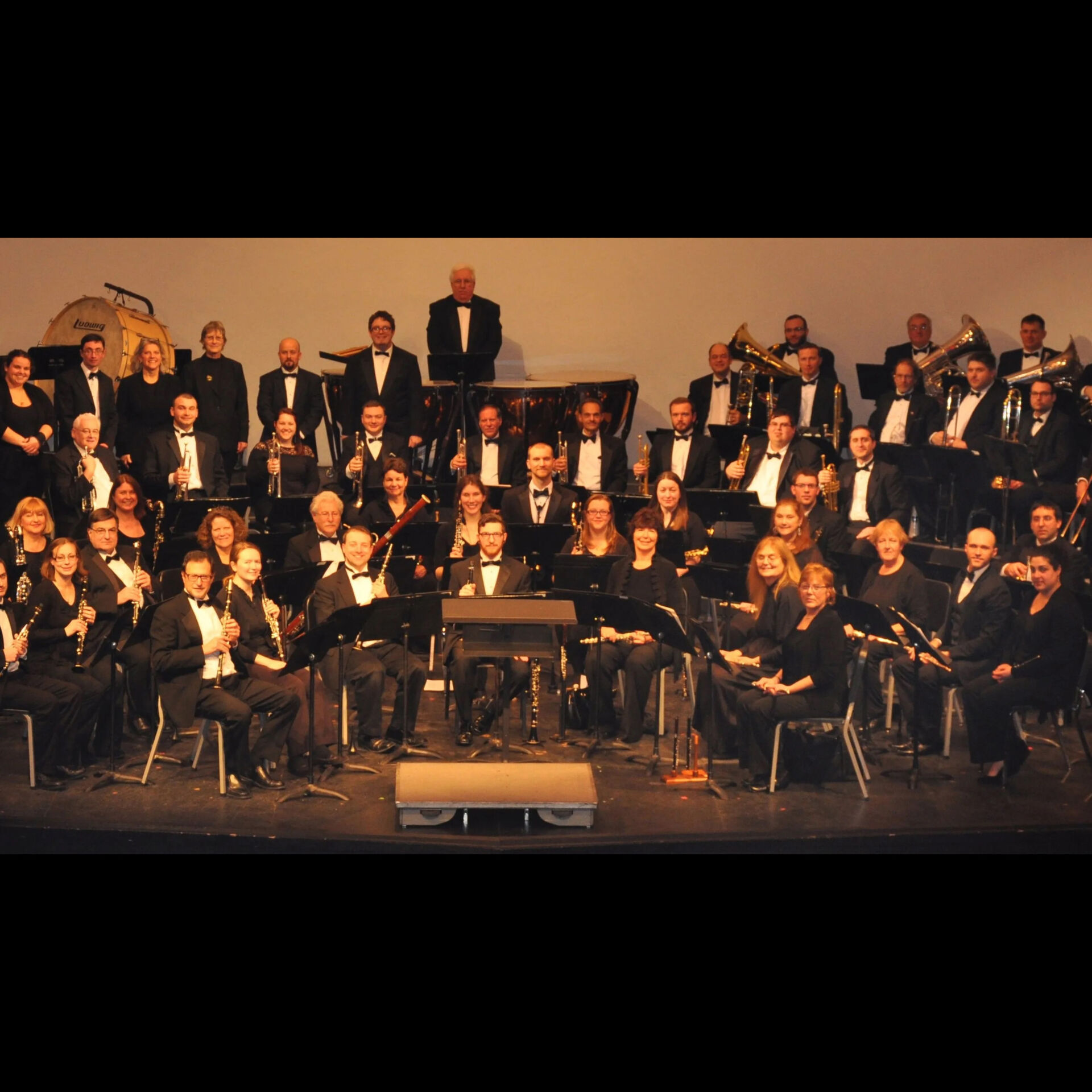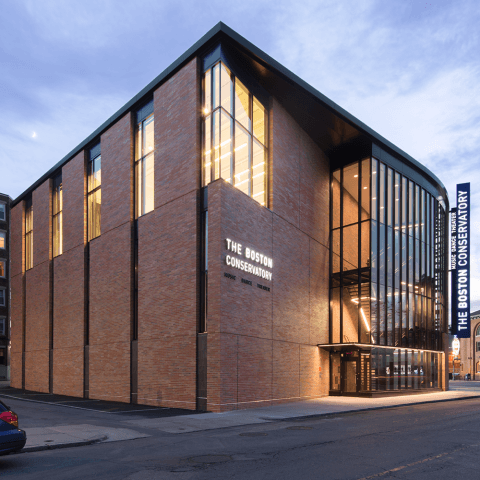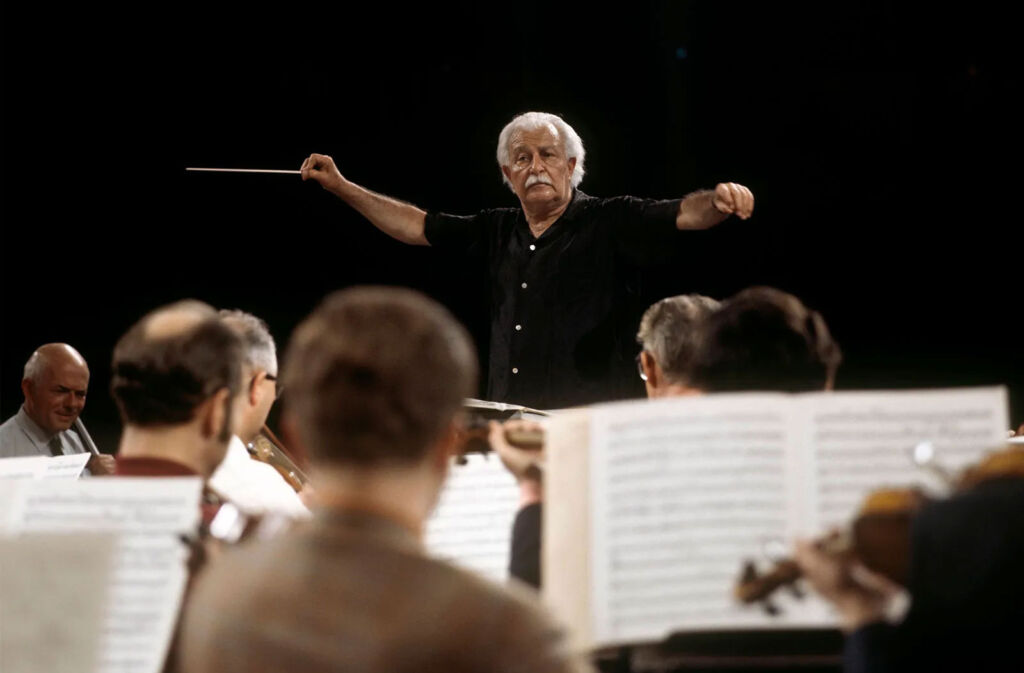The American Band

Make any reference to “an American band” and ‘70s rock fans will instantly think of Grand Funk Railroad’s #1 song of the same name from 1973, its iconic lyrics about “last night in Little Rock,” “four young chiquitas in Omaha” and, most of all, “sweet, sweet Connie doin’ her act” tattooed on their brains.
But the reference will remind many symphonic-music lovers in New England of a community band as far removed from rock ‘n’ roll as death metal is from a Baroque fugue: The American Band, based in Providence, an all-volunteer ensemble that over the past 186 years has provided inspiration and brought joy to millions – yes, millions – from soldiers and sailors to families and friends.
Formed 135 years before Grand Funk recorded its chart-topping track, The American Band has never attracted that group’s gaggle of groupies like Connie Hamzy of Arkansas, the one whose name the band immortalized. But, as one of the longest-standing musical outfits in North America, the ensemble is as prized a piece of New England’s multigenred musical mosaic as other symphonies unafraid to show their lighthearted side – like the Boston Pops – and was inducted into the Rhode Island Music Hall of Fame in 2020.
Formation
The American Band came together in 1837 in Providence, a 15-piece ensemble of brass instruments and drums founded by bugler Joseph C. Greene, who had formed a similar group in 1826, the Providence Brass Band. Its original name was the American Brass Band and it was not an all-volunteer effort as it is today. In fact, its members were the best-paid symphonic musicians in the United States for the first five years of its existence, their salaries being slightly higher than even the musicians in the New York Philharmonic when that orchestra performed its debut concert in 1842.
Brown University, Battle of Bull Run, Veterans Reunions
In 1847, the band started what became an annual tradition for the next 122 years when it appeared at Brown University’s commencement ceremonies for a fee of $80 (about $2,700 in 2023); in 1970, Brown’s student band replaced them.
In July 1861, some members of the group were present at the First Battle of Bull Run in Virginia serving two roles, musicians and stretcher bearers, and according to The American Band’s official website, the group’s “only casualty was the loss of its bass drum during the Union retreat.”
After the war, the group regularly played at veterans reunions run by the Grand Army of the Republic (a veterans advocacy group), held at Rocky Point in Warwick through the early 20th century. In the 41 years between the US centennial celebrations of 1876 and the country entering World War I in 1917 – halcyon days for brass bands across the US – The American Band was consistently one of the genre’s premier attractions.
David Wallis Reeves, Woodwinds Addition
In 1866, renowned cornetist David Wallis Reeves, an Oswego, New York native who was prominent soloist with the New York-based Dodwarth Band, replaced Greene as leader, expanding its instrumentation to include flutes, clarinets, oboes and bassoons and a groundbreaking new instrument which had been invented just 20 years before by Belgian instrument maker Adolphe Sax: the saxophone.
Name Change, First US Tour
With the addition of woodwinds, Reeves changed the group’s name accordingly – some would say egotistically – from the American Brass Band to Reeves’ American Band before leading the ensemble on its first US tour. Many more cross-country trips followed during his 32 years as director, establishing Reeves’ American Band as a national act, with newspapers from Boston to Bakersfield championing the group as one of America’s most polished and professional.
March Music Pioneers
But “going national” isn’t the most significant part of Reeves’ legacy by a long shot; his compositional skills are. Reeves is credited as the originator of the American march music genre, which he developed as a modification of the British military music that had originated from the 16th-century fighting songs of the Ottoman Empire. While John Philip Sousa popularized the genre with patriotic anthems like “The Stars and Stripes Forever” – written in 1896 and the official national march of the United States since 1987 – he consistently cited the older Reeves (by 14 years) as his biggest influence and inspiration, calling him “The Father of Band Music in America” and openly admitting that he wished he’d written Reeves’ “Second Regiment Connecticut National Guard March” himself.
Reeves wrote over 100 marches before his death from Bright’s disease in March 1900, the bulk of them while leading The American Band. John Philip Sousa sent 200 roses to his funeral, held at Providence’s First Baptist Church of America, and Reeves was buried at the city’s Swan Point Cemetery. Today, there’s a fountain named in his honor in Providence’s Roger Williams Park.
Bowen R. Church, First Recording
Following Reeves’ death, Valley Falls, Rhode Island, native and celebrated cornet soloist Bowen R. Church took the leadership role after having been Reeves’ American Band’s main attraction for a number of years (following an impromptu audition for Reeves when the two happened to meet on a train).
In 1902, two years after Church started his tenure and renamed the ensemble The American Band of Providence, the group made its first recording, “Second Regiment Connecticut National Guard March,” for the Victor Talking Machine Company, followed by many more on the label both before and after its acquisition by RCA in 1929, when the merged companies became RCA Victor. Church led the band until around 1903 and there’s a statue of him in Roger Williams Park near the fountain memorializing Reeves, his mentor.
Herbert L. Clark, Edward Fay, Becoming Volunteer
Following Church’s departure, the band had six directors over the next 75 years including Woburn, Massachusetts-born Herbert L. Clarke, a prominent and highly respected cornetist at the time, and Providence native Edward Fay, who studied under Jules Eichberg, founder Boston Conservatory (now Boston Conservatory at Berklee) and played violin with the Rhode Island Philharmonic Orchestra. During this three-generation period, the group shorted its name to The American Band, removing “of Providence,” and became a volunteer organization.
Other Directors
In 1978, the band came under the leadership of Francis M. Marciniak, director of bands at Rhode Island College, who served in the position until his death in 1986, when University of Rhode Island music professor Gene Pollart took the reins until 2013. The band’s current leader is Rhode Island University Director of Bands Brian Cardany, who leads three other Rhode Island-based community ensembles, the Ocean State Pops Orchestra in Cranston, the South County Chamber Orchestra in Narragansett and the South Kingstown Community String Orchestra.
Auditions, Two-part Mission
While The American Band is made up of volunteers, that does not mean just any musician can join. First, hopefuls need to pass a rigorous audition and commit to being available for weekly rehearsals at the Carter Center in East Providence, home of the Rhode Island Philharmonic Orchestra.
Many of the band’s members are music teachers – some at elementary, junior high and high schools, others at universities and colleges – and former director Pollart once said that the band has a two-part mission: to educate and to entertain. “We try to be educationally minded so we can to help schools and keep [school] bands going,” he said, “because one of the first things to go when you have budget crunches is the music program. We try to keep that from happening.”
2023 Ensemble
Billed as “Southern New England’s Symphonic Concert Band,” the 2023 ensemble includes roughly 50 members, all of them from Rhode Island, Massachusetts and Connecticut, and its genre-hopping repertoire features a mélange of material from marches and pop tunes to classical scores and operatic overtures. Their season runs from September to July, during which time they perform around 16 concerts – both public events and private ones, indoors and out – and the band has appeared at a variety of prominent New England venues including Boston’s Faneuil Hall.
Priority: Attracting Young People
Asked in 2013 what he thought was most important to keep The American Band going in the 21st century, former director Pollart said that attracting younger people was the top priority, since the group tends to draw an over-50 demographic. To do so, he said, the repertoire must be kept up-to-date with the ever-changing pop-music trends of the day, a comment mirroring those of Arthur Fiedler during his five decades as principle conductor of the Boston Pops.
“If we keep playing for 80-year-old people, pretty soon there won’t be anybody to play for,” Pollart said.
(by D.S. Monahan)




